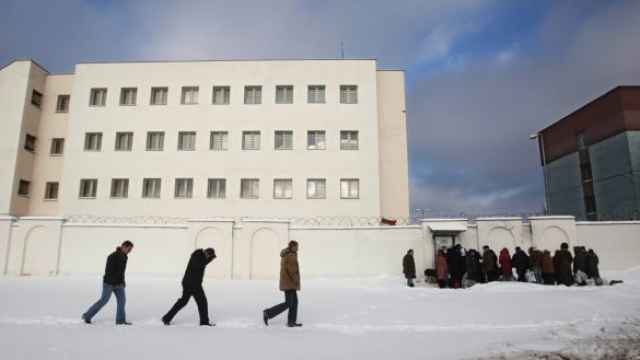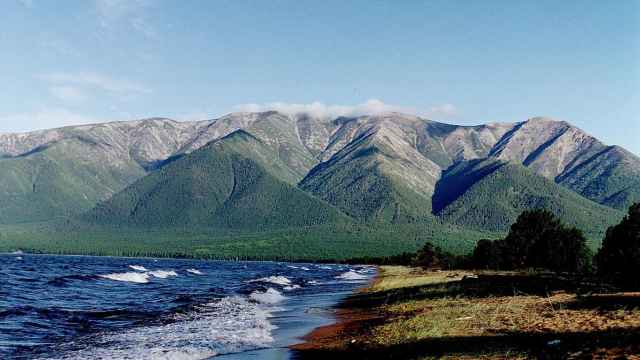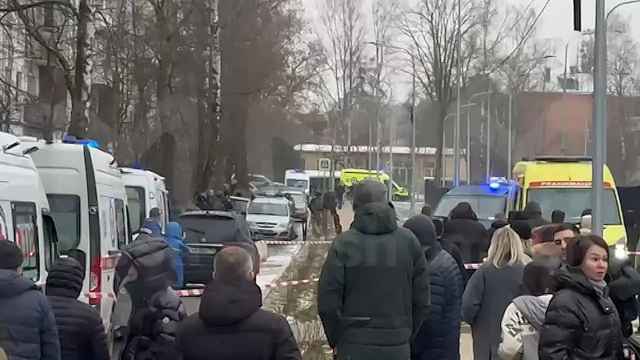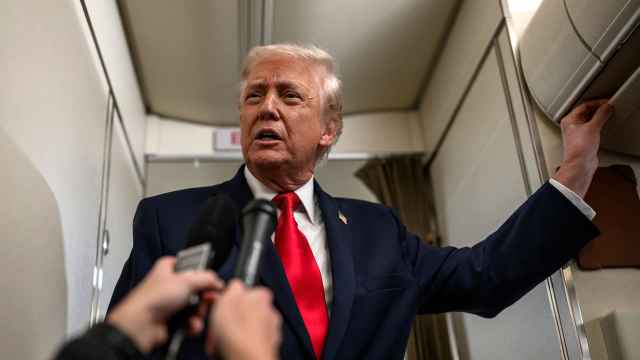MINSK — A Belarussian human rights organization said Wednesday that seven of the candidates who ran against President Alexander Lukashenko could face up to 15 years in prison after post-election violence and massive arrests.
Belarus' security service, which is still called the KGB, has filed charges against 20 top opposition figures, including the seven presidential candidates, for organizing mass disturbances, said Ales Belyatsky of the human rights center Vesna.
KGB spokesman Alexander Antonovich declined comment.
Some 700 people, including the candidates, were arrested after Sunday's election that gave Lukashenko a fourth term in office.
Two of the arrested candidates were later released, but both of them — Grigory Kostusyev and Dmitry Uss — were summoned to KGB offices for further questioning on Wednesday.
Many of the arrests came on Sunday night, when thousands protested the results. The international monitors called the election fraudulent.
In a brief telephone interview, Kostusyev said that "the regime has shown its true essence."
"We've been thrown 10 years into the past," he said.
Kostusyev said Uss was sitting next to him in the KGB offices as he spoke.
Along with Uss and Kostusyev, those charged include Andrei Sannikov, whom the Central Elections Commission's widely disputed count says was the top vote-getter among the challengers — credited with 2.4 percent compared with Lukashenko's 79.6 percent. Sannikov's wife, Irina Khalip, and Natalya Radina, editor of an opposition web site affiliated with Sannikov, also face the charges, Vesna said.
Vladimir Neklyayev, another prominent challenger, was beaten as he tried to lead a column of supporters to the protest in central Minsk on Sunday night. He was hospitalized, but later forcefully taken from the hospital and placed in KGB custody.
The other arrested candidates are Nikolai Statkevich, Vitaly Rymashevsky and Ales Mikhalevich.
Also Wednesday, the Belarussian parliament ratified an agreement to create a "unified economic space" with Russia and Kazakhstan.
Preliminary agreement on the zone was reached 10 days before the election. As part of that agreement, Russia said it would drop tariffs on oil exported to Belarus, a concession that significantly strengthened Lukashenko's hand.
A Message from The Moscow Times:
Dear readers,
We are facing unprecedented challenges. Russia's Prosecutor General's Office has designated The Moscow Times as an "undesirable" organization, criminalizing our work and putting our staff at risk of prosecution. This follows our earlier unjust labeling as a "foreign agent."
These actions are direct attempts to silence independent journalism in Russia. The authorities claim our work "discredits the decisions of the Russian leadership." We see things differently: we strive to provide accurate, unbiased reporting on Russia.
We, the journalists of The Moscow Times, refuse to be silenced. But to continue our work, we need your help.
Your support, no matter how small, makes a world of difference. If you can, please support us monthly starting from just $2. It's quick to set up, and every contribution makes a significant impact.
By supporting The Moscow Times, you're defending open, independent journalism in the face of repression. Thank you for standing with us.
Remind me later.





